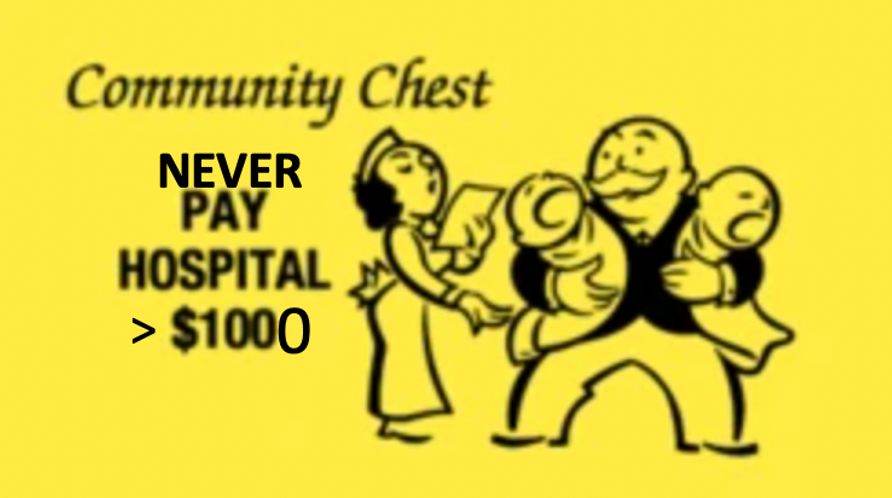The Preschooler vs. the Dentist, Part 4: The Smashing Conclusion
- Sep 15, 2020
- 3 min read
Here is a review to date, before we reveal the smashing conclusion...

Part 1. When we first encountered our mini-heroine, her parents were facing a $2500 estimate to fill three cavities.
Let that sink in. $2500 to fill 3 cavities.
The “oh, by the way” part of this proposal was that this procedure would require general anesthesia. The parents, because they are not Quizzify users, were unaware that a $25/tooth option existed, in the form of silver diamine fluoride (SDF) -- until Adam Berkowitz, a major “Quizzifan,” brought it to their attention.

Part 2: Asked by the parents, the dentist's excuse for not having mentioned it was: "We usually only offer that to patients without insurance." The dentist then proposes an "emergency visit" to discuss SDF. "Emergency visits," normally reserved for fillings falling out, abscesses, etc., are reimbursed at a much higher rate than scheduled visits.
See the article in Dental Economics -- we are not making up this title -- Four Coding Tips to Stop Leaving Money on the Table. The entire SDF treatment could have been completed in the time it took to have an "emergency visit" to discuss it -- at a lower cost than the emergency visit itself.
At least, we think this to be the case, but we can't find an example of an emergency visit that is only about a conversation, rather than a fix.

Part 3: A little research reveals that pediatric dentists are required to discuss SDF as an alternative to drill-and-fill. And yet, has yours ever mentioned this to you? We didn't think so.
The smashing conclusion
The parents opted for the $2500 procedure involving general anesthesia. See? We told you we didn't know how this was going to unfold. This wasn't a setup. If it had been a setup, it would have turned out the opposite way.
Why did they do this? Well, it's possible they remembered the old Wendy's Hamburger A-vs-Hamburger B commercials -- helpfully compiled below -- and had their own reasons.
More, likely, they were naturally distrustful of a non-dentist, Adam Berkowitz, challenging the established dentist by claiming that the same outcome could be achieved completely painlessly using what amounts to a magic potion, at a 97% lower cost. And requiring only about 15 minutes, reduced exposure time being another plus in 2020. (Having said that, most dentist offices are quite safety-conscious.)
That is why Quizzify, though we offer an entire quiz on the subject of SDF ("Cavities in the Time of COVID") -- we never, ever, post this quiz to new users. It's simply too powerful to be believable to a first-time player. We show new users the Launch Quiz to acquaint them with Quizzify, and then do several more quizzes before unleashing that one. You can play the Launch Quiz here.
Proposing something as disruptive as SDF requires a trust relationship. After 7 months, 97% of Quizzify users trust Quizzify, as well they should. (Data on request.) Not just because Quizzify carries the Harvard Medical School "shield," but also because of our track record for being right. Sometimes we even beat the news media to a story, as when we pointed out the link between tick bites and COVID a week before it made the national news.
Our advocacy was not in vain
As you can see from our Testimonials page ("Real quotes from real people with real names"), several readers -- all long-time Quizzi-fans -- did in fact take this advice. One reports how his daughter avoided having a cavity filled:

That was just a cavity -- savings of maybe $100-$150. (Not to mention avoided stress.) Here are two others who -- just in the 12 weeks since our first posting -- avoided, or at a minimum much-delayed, far more expensive and stressful root canals for their kids:

And it also caught the attention of the Massachusetts Municipal Association's insurance division, whose Well Aware newsletter reaches many public-sector employees throughout Massachusetts. They enhanced and republished our initial posting.
Hopefully, as a result of this well-publicized (by the standards of these things) expose not just of the questionable ethics of this one St Louis practice -- and basically of the dental industry generally, which steadfastly refuses to follow their own rules in bringing up SDF -- we've at least changed the conversation. What was: "Why would employers want to educate employees on SDF?" has become: "Why wouldn't employees want to educate employees on SDF?"
The same is true for employee education as a whole: Why wouldn't an employer want to teach employees how to use their healthcare benefit? After all, healthcare is a company's only expense line item where employees at all levels get an unlimited budget. Not to mention zero supervision in how they spend it. Why not teach employees how to spend your money wisely?





